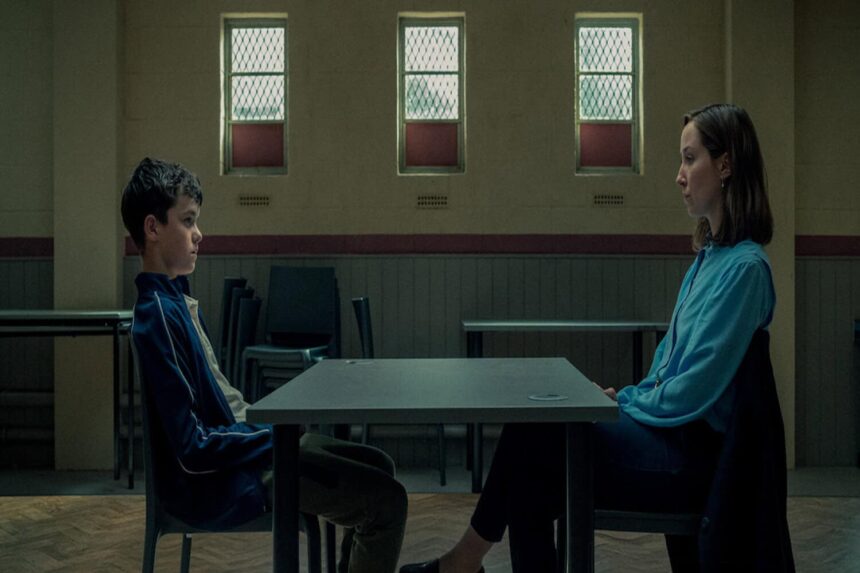Warped ideology that is reaching even young SA minds – but it’s good.
There’s a concerning culture that has emerged in the digital age, toxic, dangerous, and silently growing. It’s known as the incel culture.
A term derived from “involuntarily celibate”, the incel culture is an online subculture consisting of men who claim to be unable to find a romantic or sexual partner despite their desire for one.
What sets this group apart is not just their loneliness, but the entitlement, bitterness, and often, the hatred directed towards women and girls.
Promoted by figures like social commentator Andrew Tate, the incel culture has found a home on online platforms where misogynistic beliefs are perpetuated.
This warped ideology has managed to seep into the minds of impressionable young individuals, even in South Africa. It’s a difficult subject to address, but Netflix’s series, Adolescence, tackles it head-on.
Co-created and written by Stephen Graham and Jack Thorne, and directed by Philip Barantini, Adolescence uses a continuous one-shot style to provide an immersive experience for viewers.
The story revolves around the Miller family, specifically their 13-year-old son Jamie, who is arrested for the murder of a female schoolmate. The series delves into the psychological turmoil of a teenager influenced by unseen forces and a digital world that parents struggle to comprehend.
With Brad Pitt as an executive producer, Adolescence offers a gripping narrative with stellar performances from the cast, especially the young lead portraying Jamie.
The series sheds light on the silent battles young boys face, especially those who feel invisible and unheard in society.
Through therapy sessions, prison dialogues, and media scrutiny, Adolescence highlights the impact of digital culture on today’s youth.
The portrayal of the British legal and prison system adds depth to the narrative, showcasing the complexities of juvenile offenders’ treatment.
Adolescence also exposes the challenges within the education system, where teachers live in fear of students, unable to intervene effectively.
At its core, Adolescence explores the dynamics of parenting, emphasizing the struggle of guiding children in a world shaped by negative influences.
The series prompts essential questions about children’s media consumption, their role models, and the importance of open conversations between parents and children.
Adolescence is not just entertainment; it serves as a wake-up call for society, urging reflection and dialogue on pressing issues affecting youth.
As one of Netflix’s top-viewed shows in South Africa, Adolescence stands out as a thought-provoking and impactful series deserving of attention and discussion.
Watch it, then engage in meaningful conversations about its themes and messages. The Impact of Social Media on Mental Health
Social media has become an integral part of our daily lives, with millions of people around the world using platforms such as Facebook, Instagram, Twitter, and Snapchat to connect with others, share their thoughts and experiences, and stay updated on current events. While social media has many benefits, such as facilitating communication and providing a platform for self-expression, it also has a dark side that can have a detrimental impact on mental health.
One of the main ways in which social media can negatively affect mental health is through comparison. When people scroll through their feeds and see their friends or acquaintances posting about their seemingly perfect lives, it can lead to feelings of inadequacy and low self-esteem. This phenomenon, known as social comparison, can be particularly damaging to individuals who are already struggling with issues such as anxiety or depression.
Another way in which social media can impact mental health is through cyberbullying. With the anonymity that social media provides, people can easily engage in hurtful and damaging behavior towards others, leading to feelings of isolation, shame, and even thoughts of self-harm. Cyberbullying has been linked to an increase in anxiety and depression among young people, with some studies suggesting that it can have long-term effects on mental well-being.
In addition to comparison and cyberbullying, the constant exposure to curated and often unrealistic portrayals of life on social media can also contribute to feelings of loneliness and social isolation. Many people spend hours scrolling through their feeds, seeing images of parties, vacations, and happy moments, which can create a distorted perception of reality and make individuals feel like they are missing out on something important.
Furthermore, the addictive nature of social media can also have a negative impact on mental health. Studies have shown that excessive use of social media can lead to feelings of anxiety, stress, and even symptoms of addiction. The constant need to check notifications, likes, and comments can create a cycle of validation-seeking behavior that can be difficult to break.
Despite these negative effects, it is important to note that social media is not inherently bad for mental health. In fact, it can be a valuable tool for fostering connections, building communities, and providing support to those in need. However, it is crucial for individuals to be mindful of their social media usage and to take proactive steps to protect their mental well-being.
One way to mitigate the negative impact of social media on mental health is to limit screen time and take regular breaks from social media. Setting boundaries around when and how often you use social media can help reduce feelings of overwhelm and burnout. Additionally, engaging in activities that promote mindfulness and self-care, such as meditation, exercise, and spending time with loved ones, can also help alleviate the negative effects of social media on mental health.
In conclusion, while social media has the potential to enrich our lives in many ways, it is important to be aware of its impact on mental health. By being mindful of our social media usage and taking steps to prioritize our well-being, we can ensure that we are using these platforms in a healthy and responsible manner.








